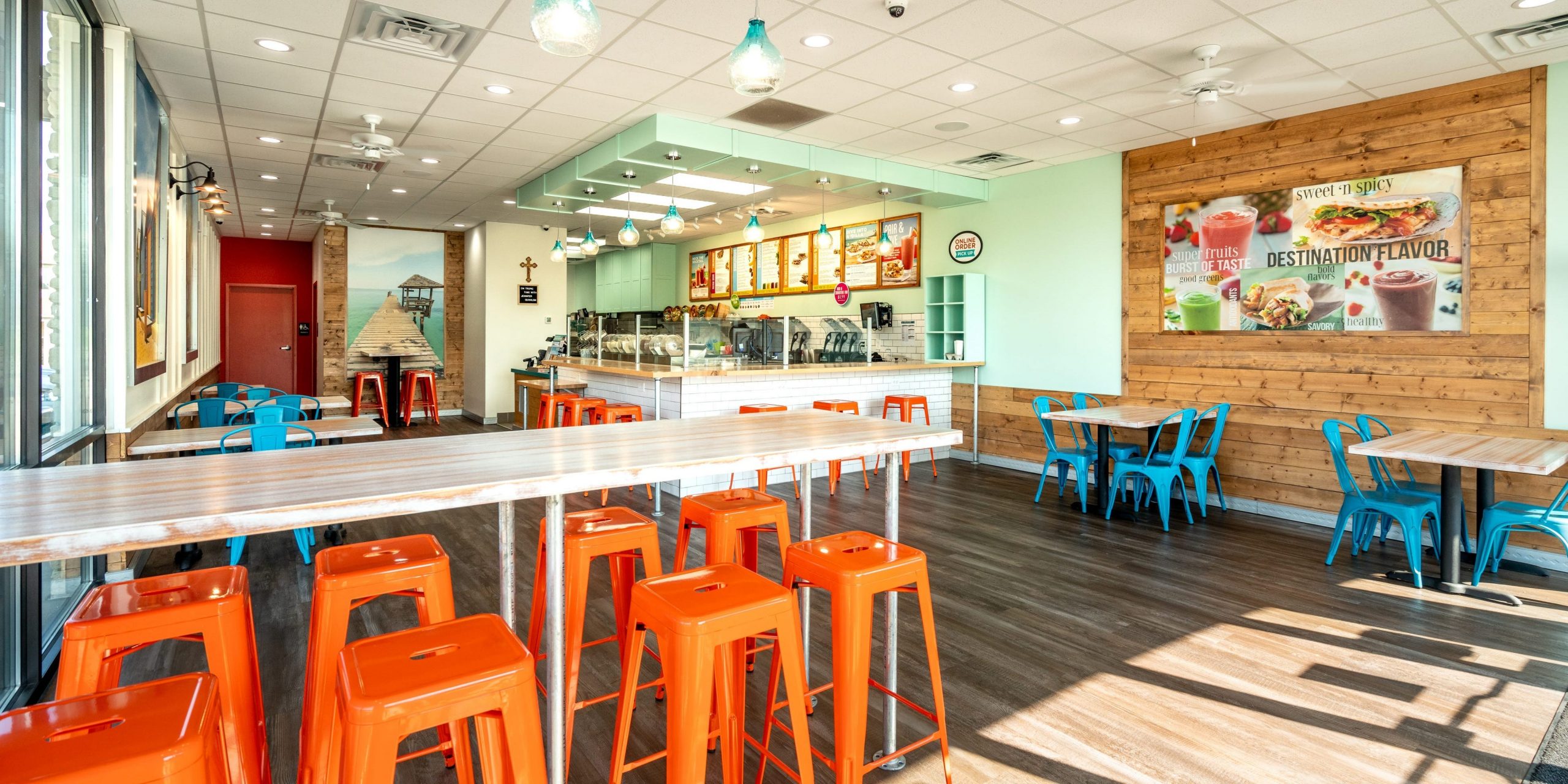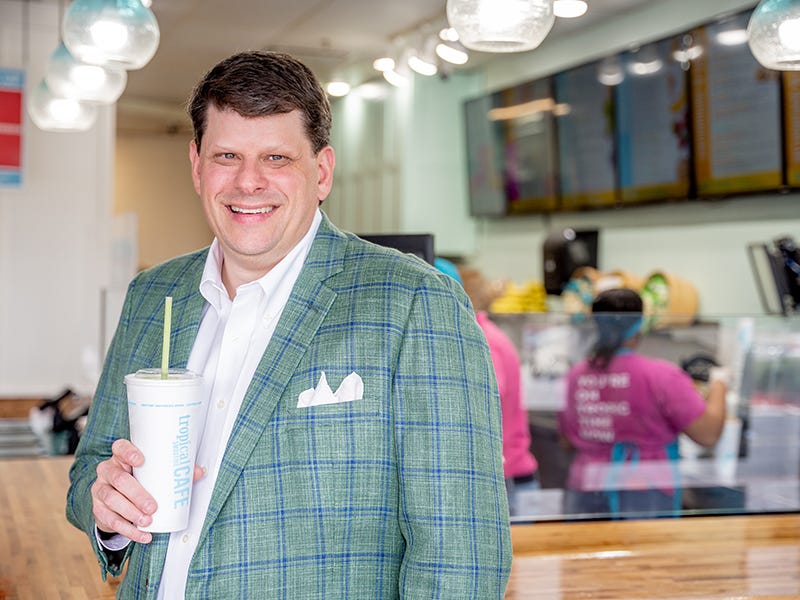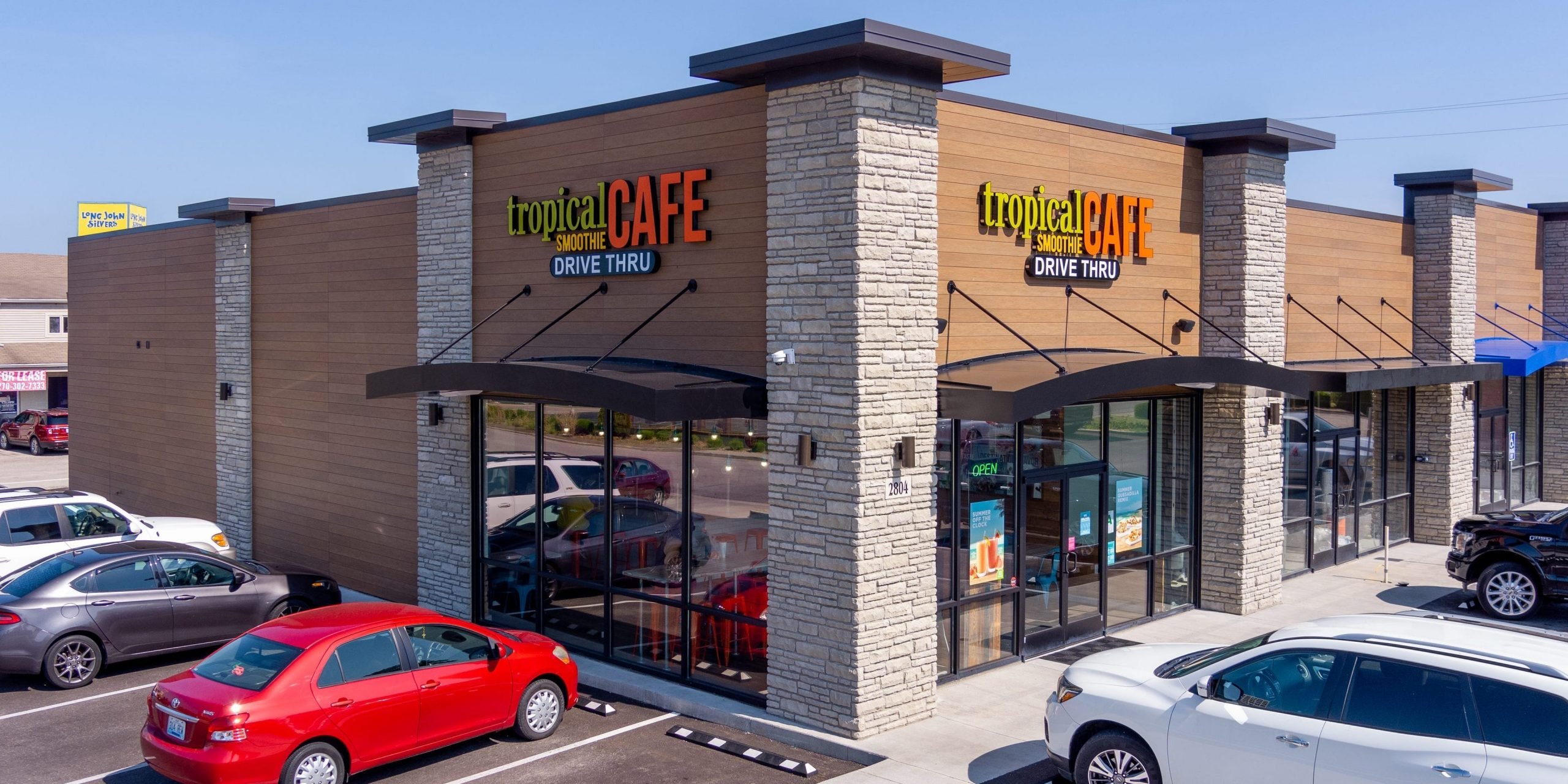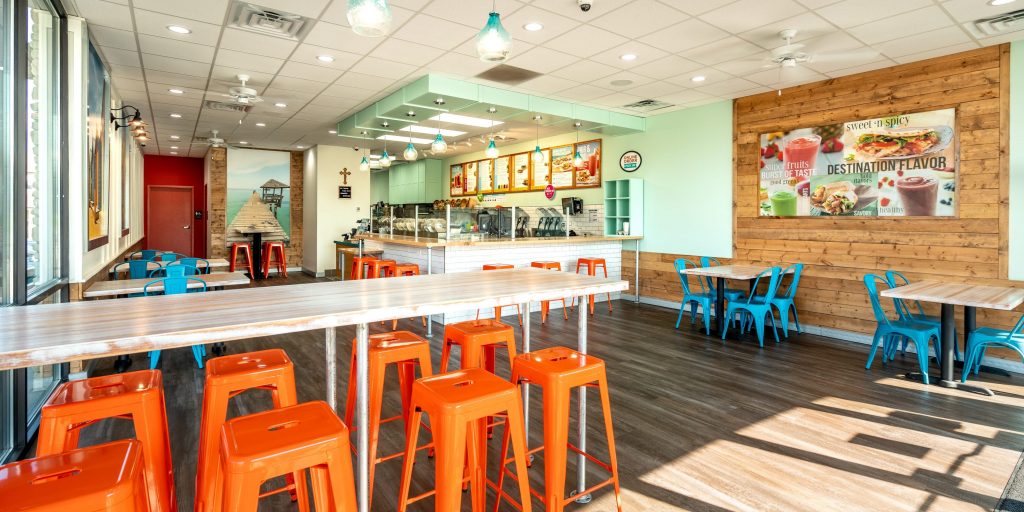
Tropical Smoothie Cafe
- Tropical Smoothie Cafe doesn't intend to open any ghost kitchens soon, its CEO Charles Watson said.
- Instead, the company plans to open hundreds of brick-and-mortar cafes, many with smaller footprints.
- But Watson still expects more than half of the company's revenue to come from digital sales by 2024.
- See more stories on Insider's business page.
Tropical Smoothie Cafe is bucking the trend of restaurants and cafes opening ghost kitchens during the pandemic.

Tropical Smoothie Cafe
The smoothie chain is eyeing huge bricks-and-mortar expansion and is set to open its 1,000th location next month – but CEO Charles Watson told Insider it didn't have plans to launch any ghost kitchens.
Ghost kitchens are food establishments that don't have dining rooms and just prepare orders for delivery.
"I don't think many brands need ghost kitchens," he said.
"I am not a big proponent of ghost kitchens for Tropical Smoothie right now. I'm a little bit on the other end of that," Watson continued.
This is despite the proportion of the company's business that comes from digital sales growing massively during the pandemic. Around 35% of the company's sales come from digital orders - via its website, app, and third-party delivery services - compared with 24%, pre-pandemic.
Watson expects this figure to grow to more than 50% over the next three years.
He said that the company has hundreds of new cafes in the pipeline. The company's existing locations have average annual sales of around $840,500.
"I'm gonna go open 750 real kitchens," Watson said. "We are headed smaller in terms of footprint ... That's my ghost kitchen."
One major advantage of ghost kitchens is that they have much smaller real estate needs than full-service restaurants because they don't need space for dine-in and customer parking and toilets.
"They are effectively a highly efficient real estate model," David Bloom, chief development and operating officer at Capriotti's and Wing Zone, told Insider.

Tropical Smoothie Cafe
But Tropical Smoothie Cafe's locations are small anyway. Its cafes, which make around 65% of their sales from smoothies, are on average 1,600 square feet, with seating for between 20 and 30 customers, Watson said. This is less than half the square footage of the average freestanding McDonald's restaurant.
"I don't think for our brand, I don't think ghost kitchens do much of anything," Watson said.
"If we were to use them at all, it would be to seed a market," he said. Other brands like Noodles & Company and Wendy's have similarly said they planned to use ghost kitchens as a cheaper way to test out new markets before moving in with full brick-and-mortar restaurants.
Other restaurants, like The Halal Guys and Marco's Pizza, told Insider they're using ghost kitchens to expand delivery capacity in areas they already have brand recognition.
"I see ghost kitchens as a test vehicle, but not an expansion vehicle for Tropical Smoothie Cafe," Watson said.
Smashburger is also shunning ghost kitchens for the time being.
Most ghost kitchens are located in industrial areas away from where customers actually live.
Smashburger president Carl Bachmann told Insider that this means take-out orders have long delivery journeys which affect their quality. Instead, the company can opt to build smaller restaurants in areas where orders heavily skew towards take-out or delivery, he said.
Do you work in the restaurant industry? Got a story? Email this reporter at [email protected].
